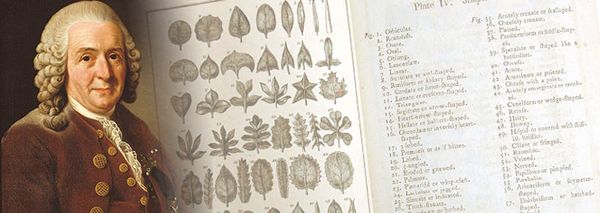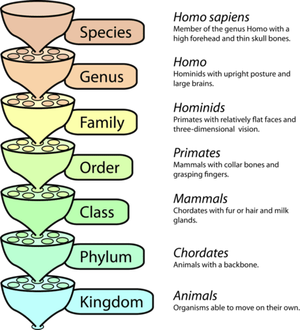 Since I first began playing folk music, I found that a keen interest in science, nature and the environment was not an uncommon characteristic of the musicians and singers I met and learned from. The man who first welcomed me to the thriving CT folk scene, Don Sineti, has been and continues to be a champion of cetacean (whales and dolphins) conservation and environmental consciousness. Likewise, the flute player from whom I learned many tunes, Jim Sirch, lectures in ecology at the Yale Peabody Museum. These and countless other examples made it clear to me that home-grown and hand-crafted music sits comfortably in the hands of environmentally conscious folks. They inspired me to combine my interests in nature and music.
Since I first began playing folk music, I found that a keen interest in science, nature and the environment was not an uncommon characteristic of the musicians and singers I met and learned from. The man who first welcomed me to the thriving CT folk scene, Don Sineti, has been and continues to be a champion of cetacean (whales and dolphins) conservation and environmental consciousness. Likewise, the flute player from whom I learned many tunes, Jim Sirch, lectures in ecology at the Yale Peabody Museum. These and countless other examples made it clear to me that home-grown and hand-crafted music sits comfortably in the hands of environmentally conscious folks. They inspired me to combine my interests in nature and music.
 Now, I have rarely ventured into the world of songwriting, and I have great respect for those with the skill and originality to craft words and melody into something timeless, catchy and meaningful. The courage to then share a song with the rest of the world is even more admirable. My early creations were sparse and primarily parodies of folk songs focusing on insects and their natural histories. I would borrow the melody and lyrical structure from a song like 'Bury Me Beneath the Willow' and attempt to write a song about a willow-feeding caterpillar...but I rarely completed these little song-writing experiments.
Now, I have rarely ventured into the world of songwriting, and I have great respect for those with the skill and originality to craft words and melody into something timeless, catchy and meaningful. The courage to then share a song with the rest of the world is even more admirable. My early creations were sparse and primarily parodies of folk songs focusing on insects and their natural histories. I would borrow the melody and lyrical structure from a song like 'Bury Me Beneath the Willow' and attempt to write a song about a willow-feeding caterpillar...but I rarely completed these little song-writing experiments.
In 2008, I first heard Finest Kind sing “No More Fish, No Fisherman” at the 29th annual Mystic Sea Music festival. I thought this song which Shelley Posen had written was one of the greatest I had ever heard. After buying the album and reading the liner notes, I was amazed to learn that the melody was hijacked from an English Christmas carol of all things! This took parodying an important step further: lose all the words, keep the melody, and write something new and beautiful. Since then, I’ve desired and endeavored to create something equally catchy and powerful about biology, entomology or some other natural science.
In 2015, an idea finally took root. I wanted to write something like a drinking song where each verse toasted the next character in a series (cf. The Barley Mow). With that in mind, the idea to focus on Linnaeus’s biological classification system was almost immediate. Each of the verses of the song would describe one of the 8 hierarchical categories that human beings are classified in, starting with Domain and ending with Species. I took a lesson from Shelley and borrowed a melody of the same type. Where he had repurposed the melody of “See Amid the Winter Snow”, I borrowed another English carol, “Awake, Arise, Good Christians” that I heard from the singing of the late and very great Tom Gibney. This is a song that I fell in love with musically, but had no interest in singing because of my complete lack of emotional connection to the lyrics.
As I made my daily commute between Providence and the University of Connecticut in late 2015, I gradually composed each verse. It helped that I was teaching introductory biology labs at the time and was immersed in this particular level of taxonomy. The chorus came surprisingly easily and 'Linnaeus'/'betray us' will always be the rhyme I'm most proud of. The final line of the chorus and likewise the title of the song, "One species are we!' has the look and emotional weight of an all-inclusive mantra that aims to remind us all that despite the hate and egregious injustices that are interminably displayed on every media outlet and mar our brief existence on this planet, we humans are not all that different. In fact, despite color, creed, heritage, etc., we are all as closely related as we can be in a taxonomic sense. When I started writing the song, I didn't expect it to have a strong underlying message, but alas, that's how it went. And since I was on that road already, I had to seize the opportunity to include a topical political punch line in the final verse.
By mid-January the song was nearly complete. I tried it out for the first time at a local pub sing in Providence where it was received with great delight and encouragement. I slyly (or perhaps boldly) snuck it in at other sings, musical gatherings and festivals around New England until friends started requesting it. Recently, I sang it at TradMad at Pinewoods camp and I was flattered by the number of people who asked me for the lyrics and showed interest in learning the song. So I'm finally making good on my promise to distribute "The Linnaeus Song", and I'll be eagerly looking forward to hearing someone else lead it for a change.
The lyrics (with some helpful definitions) are below. Armand and I have yet to make a proper recording of this song, but thanks to our good friend Benjamin Foss, there is a rough recording from the 2016 New England Folk Festival available here (http://logamp.com/1808/music/tracks/7264) for your educational listening pleasure.
-Benedict
One Species Are We
(melody = Awake, Arise Good Christians)
Of three domains of all life, eukaryotes are we
Inside each cell within us, a nucleus there be
Bacteria, Archaea, unfortunate are they
They have no membrane bound around their strands of DNA
Chorus: Linnaeus! Linnaeus! Here’s to your hierarchy
And let it not betray us! One species are we!
Come all you motile metazoans and listen to my song
The kingdom Animalia is where we all belong
The plants may have their chlorophyll to photosynthesize
But animals are heterotrophs and so are the Fungi
Our backbone gives us structure, our backbone gives us strength
So with the other chordates, we find our phylum rank
But let our boney ego, never be unfurled
For the spineless worms and insects, they truly rule the world
By the milk our mothers gave us, by the hair upon our skin
It’s clear that we are mammals, class Mammalia we’re in
Most have a placenta, but this class has strange extremes
Like the milky-pouched marsupials and egg-laying monotremes
So let’s put things in order, now that we’ve been to class
With monkeys, apes, prosimians, we, the primates, do amass
We all can be distinguished by our well-filled craniums
And the envy of all other life: two fine opposable thumbs
Welcome to our family, all Great Apes are we
Orangutan, gorilla and our cousin chimpanzee
But if you believe bonobos just evolved into man
It seems you treat your own brain just like a garbage can
Homo is the genus of the African bipeds
Who stood erect, and picked up tools, and learned to use their heads
Our cousins are extinct now, leaving only us
But thanks to our bad habits, we may join them soon enough
So we are Homo sapiens but let us not forget
The reason we were given our specific epithet
We earned it for our wisdom, we earned it for our brain
Let fear and hatred never trump our consciousness again
Some Helpful Definitions:
- eukaryote: any organism whose organelles (i.e. nucleus) are bound in a membrane (i.e., animals, plants and fungi). As opposed to prokaryotes (Bacteria and Archaea) which lack membrane-bound organelles and have free-floating DNA.
- Archaea: single-celled, extremophile, prokaryotic (lacking membrane-bound organelles) microorganisms
- metazoan: multicellular, eukaryotic organisms (= animals)
- heterotroph: an organism that must obtain food and energy from external organic sources, as opposed to an autotroph (i.e., plant) that can synthesize its own food from inorganic substances and light or chemical energy
- chordate: an animal in the phylum Chordata which has a vertebral column (backbone)
- monotreme: a primitive group of mammals that lay large, yolky eggs. The only extant examples are the platypus and four species of echidnas
